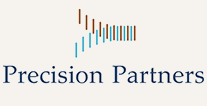When honesty risks the deal—but protects your reputation, your client, and the outcome of an RFP response strategy.
As constituent relationship management (CRM) consultants in the advancement space, we’ve all been there. A request for proposal (RFP) lands in your inbox with an ambitious vision. Migrate from a legacy system to a modern advancement CRM, integrate with multiple platforms and data sources, train 200+ users, and Go Live in six months.
The budget is tight. The expectations are sky-high. And your advancement CRM consultant instincts are flashing red.
This is what I call the advisor’s dilemma: Do we craft a proposal that tells the client what they want to hear? Or risk losing the opportunity by being honest about what’s actually achievable?
Here’s my take on an RFP response strategy for successful advancement CRM implementation.
The Temptation to Say Yes in RFP Response Strategy
I get it. Competition is fierce. Whether you’re going up against other advancement CRM experts or firms with broad platform reach, the pressure to be the “can-do” consultant is real. When a prestigious university or healthcare system releases an RFP, every fiber of your business development instincts wants to say, “We can make it work.”
But here’s the uncomfortable truth: Agreeing to unrealistic parameters isn’t winning—it’s setting everyone up for failure.
The Real Cost of Unrealistic Timelines
When we agree to impossible expectations, someone always pays the price—and often it’s the client.
- Change Management Gets Shortchanged: Organizations have a finite capacity for change. If you push too hard and too fast, adoption suffers.
- Client Team Burnout: Subject matter experts (SMEs) and project team members are forced to work nights and weekends to meet arbitrary deadlines. These are the same people who need to sustain and support the system long after Go-Live.
- Relationship Suffers: When the timeline unravels—as it inevitably will—the advisor gets blamed. It won’t be the RFP that takes the fall.
- Quality Suffers: Rushed data migrations, shortened testing periods, and compressed training schedules don’t just disappear—they become post-launch problems.
Why I Choose Honesty Over the Shortlist
I’ve learned to embrace a simple principle: I’d rather lose a proposal than fail a client.
When I see an RFP with unrealistic expectations, I use my RFP response strategy to educate, not just compete. I explain why the timeline won’t serve their goals. And I outline the phases required for a successful CRM implementation. Offering a phased approach, I prioritize sustainability over speed.
- Does this cost me opportunities? Yes.
- Have I seen less-experienced firms win by overpromising? Many times.
- Have those projects gone sideways within 12–18 months? Also, many times.
The Long Game of Advisory Excellence
Advisory work isn’t about telling clients what they want to hear—it’s about guiding them toward what will work.
Picture this: Five firms submit proposals—four promise to meet an aggressive six-month timeline. One (yours) explains why that’s unrealistic and proposes a phased plan that takes 30% longer—but results in 200% better outcomes.
Even if you don’t win the work, you’ve planted valuable seeds, including:
- Awareness of risks they may not have considered
- Framework for evaluating what other vendors are offering
- Questions about whether they’re truly ready for the change they’re proposing
What the Industry Data Tells Us
Most advancement CRM implementations take 12 to 24 months—depending on scope, complexity, and institutional readiness.
Six-month advancement CRM implementations may look impressive in a proposal, but in reality, they lead to cut corners, disengaged users, and expensive rework.
Practical Strategies for Responding Honestly
Here’s how to approach an RFP response strategy that adds value—even if you don’t win. Build a high-integrity RFP response strategy with these ideas in mind:
- Lead with education: Explain the typical phases of advancement CRM implementations and what success realistically requires.
- Offer alternatives: Propose a phased rollout.
- Phase 1: Core fundraising and advancement functionality
- Phase 2: Analytics, reporting, and integrations
- Phase 3: Full optimization and user adoption strategy
- Share stories: Use relevant examples that show what can go wrong (and how to do it right).
- Be specific about risk: Don’t just say “this won’t work”—name what’s likely to break: data integrity, user adoption, post-Go-Live support.
- Recommend assessments: Suggest a readiness or discovery phase to evaluate data quality, staffing capacity, and change management needs.
When “No” Creates More Value Than “Yes”
I’ve had proposals that didn’t win initially—but led to engagements later. Often, that happens when the chosen vendor fails to deliver, and the client circles back to the person who was honest from the beginning.
But more importantly, I’ve seen organizations restructure their entire CRM implementation strategy because my proposal helped them pause, reassess, and make a more informed decision.
That’s the objective measure of advisory impact. Not whether you won the contract, but whether your expertise helped the client avoid a costly mistake.
The Reputation You Want to Build
In our niche market, your reputation isn’t defined by how often you say “yes”—it’s shaped by how you deliver what works.
Ask yourself:
- Do you want to be the advancement CRM consultant who promises aggressive timelines and delivers stressed-out teams, compromised functionality, and failed adoption?
- Or the one who provides honest, expert guidance, and delivers a system that actually works?
Long-term, clients remember the advisor who was candid and straightforward, even if it wasn’t what they wanted to hear at the time.
The Advisor’s True North
At the end of the day, our role in advancement CRM consulting isn’t to win every RFP—it’s to lead clients toward meaningful, lasting success.
- Sometimes that means saying, “No, not like this.”
- Sometimes it means walking away from a project that doesn’t set anyone up to succeed.
But if your honest RFP response strategy causes even one organization to pause and ask, “Are we really ready?”—then you’ve done your job.
The deals we lose with integrity often become the relationships we’re proudest to build later. And in a field where long-term partnerships matter more than quick wins, that kind of honesty becomes your most valuable differentiator.
- What’s your experience with the advisor’s dilemma?
- How do you balance honesty with competitiveness in RFP response strategy?
Share your thoughts and let’s continue this important conversation about your RFP response strategy and what it means to serve our clients in the advancement technology space.

